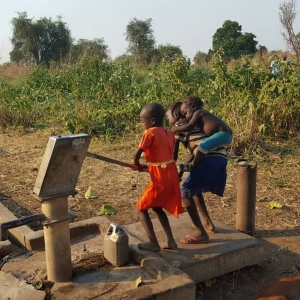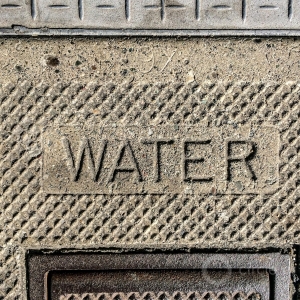Federal Water Tap, August 12: EPA Proposes Limiting Use of Clean Water Act to Review Fossil Fuel Infrastructure
The Rundown
EPA aims to change Clean Water Act provisions that allow states to grant water quality permits. Federal watchdog agency will investigate the management of Lake Ontario water levels, which reached record highs this summer and flooded lakeshore properties. The EPA’s internal watchdog finds that the agency exceeded the deregulatory targets in a 2017 executive order. Sen. Booker drafts a climate bill that focuses on farms, forests, and wetlands. The U.S. Department of Agriculture announces $135 million in loans and grants for rural water infrastructure. The Defense Department’s PFAS task force held its first meeting. And lastly, the Bureau of Reclamation should release a report this week that will set next year’s operating schedule for Lake Mead and Lake Powell.
“While our farmers face unique impacts from climate change, our farmers are also uniquely positioned to capture and store carbon in the ground, produce clean energy, and to reduce emissions. The same farmland practices that store carbon and reduce emissions also improve the ability of our farms to withstand extreme weather, reduce water pollution and protect drinking water, and reduce flood damages by storing and slowly releasing flood waters.” — Sen. Cory Booker (D-NJ), in a statement about his climate change bill that focuses on land use.
By the Numbers
$135 million: Federal funding announced for rural water infrastructure. The money — two-thirds in loans and one-third in grants — will go to 49 projects in 24 states. Average funding is $2.8 million per project. (U.S. Department of Agriculture)
75.62 meters: Elevation of Lake Ontario, which, after an exceptionally wet year, remains close to a record high. Lakeshore properties have been flooded this summer, leading residents to threaten lawsuits. A federal government watchdog agency will investigate the effectiveness of a 2014 plan for managing the lake’s water levels. (International Joint Commission)
In context: Lake Ontario Water Level Plan Tests Attitudes Toward Environment
News Briefs
Clean Water Act Revision
The U.S. Environmental Protection Agency issued a draft proposal to constrain the scope of state water quality reviews under the Clean Water Act.
At issue is Section 401 of the act, which allows states to approve water quality permits for construction projects that would impact a regulated waterbody. Section 401 has become a touchpoint in the fight over new fossil fuel infrastructure.
The proposal restricts the scope of Section 401 reviews to water quality only – not greenhouse gas emissions or other environmental impacts. Industry representatives cheered the “clarity” and “predictability” the rule would bring for infrastructure development. Western governors like Jay Inslee, of Washington, decried the diminishment of state authority.
President Trump, in an April 2019 executive order on energy development, directed the EPA to review the Section 401 guidance.
Booker Climate Bill
Sen. Cory Booker (D-NJ) released a draft version of a climate bill that focuses on farms, forests, and wetlands.
The bill increases the amount of farmland that can be enrolled in federal conservation programs designed to prevent erosions and protect water quality. It also encourages tree-planting in urban areas and restoration of coastal wetlands. The dollar figures attached to the draft are large: $37 billion over 10 years for wetland restoration, for instance.
PFAS Task Force
The Defense Department’s PFAS task force, an initiative of Mark Esper, the new defense secretary, held its first meeting. It will submit its charter and membership by the end of the month.
Studies and Reports
EPA’s Substantial Use of the Red Pen
The EPA cut significantly more regulations than required by executive order, according to an agency watchdog’s report.
President Trump’s executive order to eliminate federal rules and cut costs, issued less than two weeks after taking office, mandated several changes. It required two rules to be eliminated for every one that was introduced, and it required a net-zero increase in costs.
The EPA exceeded those targets, the Office of the Inspector General found. In fiscal years 2017 and 2018, the agency had 26 “deregulatory” actions — including postponing wastewater discharge rules for electric power plants — compared to four regulatory moves. Total costs were reduced by $96 million.
The EPA was one of at least 10 cabinet agencies to exceed the two-for-one target. Agriculture, Commerce, Interior, Homeland Security, and Health and Human Services are also on the list.
The report recommends that the agency be more transparent in its implementation of the order.
U.S. Military and Climate Change
The Congressional Research Service, which serves Congress with information, published a primer on the U.S. military’s exposure to sea level rise. Included are issues that Congress could address, including incorporating climate projections into base planning.
On the Radar
Colorado River Operating Plan
This week the Bureau of Reclamation should release a report that sets the operating schedule for Lake Mead and Lake Powell for 2020. Because of a wet winter with above-average runoff, the two big reservoirs are in better position than a year ago.
Lake Mead is not expected to fall below the threshold (1,075 feet) set in 2007 for a shortage declaration. But new lake-level targets were negotiated earlier this year. Will Mead’s forecasted elevation in January 2020 be below the level (1,090 feet) that requires extra water savings from Arizona and Nevada? Last month’s projections showed 1,087.4 feet.
Federal Water Tap is a weekly digest spotting trends in U.S. government water policy. To get more water news, follow Circle of Blue on Twitter and sign up for our newsletter.
Brett writes about agriculture, energy, infrastructure, and the politics and economics of water in the United States. He also writes the Federal Water Tap, Circle of Blue’s weekly digest of U.S. government water news. He is the winner of two Society of Environmental Journalists reporting awards, one of the top honors in American environmental journalism: first place for explanatory reporting for a series on septic system pollution in the United States(2016) and third place for beat reporting in a small market (2014). He received the Sierra Club’s Distinguished Service Award in 2018. Brett lives in Seattle, where he hikes the mountains and bakes pies. Contact Brett Walton






Leave a Reply
Want to join the discussion?Feel free to contribute!